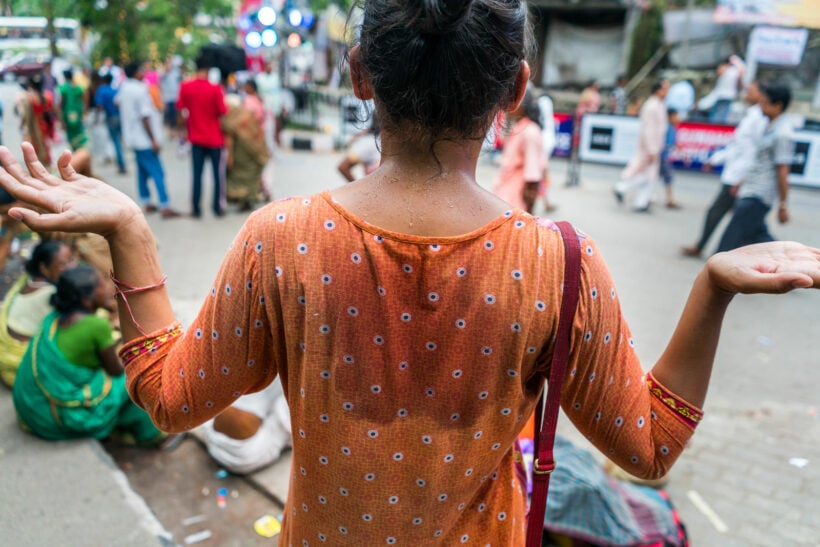Dengue hasn’t gone away – Dengue fever in Thailand 2022, and how to avoid it

Covid-19, and the controls taken to limit its spread, have clearly disrupted essential health services and other disease control programs worldwide – school closures, lockdowns, curfews and social restrictions, hoping to limit the spread of Covid-19. But those enforced changes have also resulted in the transmission of other infectious diseases, including dengue fever.
Despite dropping off the radar in the past 2 years, both in public interest and in actual cases, dengue is now making a comeback in places like Thailand.
Dengue is a mosquito-borne viral infection that has continued to pose a significant public health challenge, and has been a feature of public health policy in south east Asian countries. A recent study published in the Lancet Infectious Diseases identified a significant decline in yearly dengue cases, notably in 2020, the first year of Covid-19. GlobalData epidemiologists now predict at least a temporary decrease in dengue cases in Mexico, and Thailand.
The incidence rates of dengue were compared in 16 countries across Latin America, and 7 countries in south east Asian – Philippines, Cambodia, Vietnam, Laos, Malaysia, Thailand and Singapore. Across all 23 countries included in the study, researchers estimated that there were 720,000 fewer incident cases than expected in 2020. In particular, it was estimated that Mexico averted 115,000 incident cases, while Thailand observed 225,000 fewer incident cases of dengue during 2020.
Still, there was a noted dengue cluster in north east Thailand in 2020 with more than 6,000 cases and 4 deaths over the first 8 months of the year. The cases were reported in the Isaan provinces of Khon Kaen, Kalasin, Mahasarakham and Roi Et, according to the Thai Office of Disease Prevention.
According to GlobalData epidemiologists, lab-confirmed annual dengue cases in Mexico and Thailand have trended upwards in recent years and are expected to reach around 80,000 by 2023. But the impact of the Covid pandemic is driving a decrease in diagnosed cases of dengue in these 2 countries… the numbers falling below the forecast estimates.
So what is specifically driving this marked decrease in dengue cases? In the initial stages of the pandemic, there was a reduction in treatment-seeking behaviour for other illnesses besides Covid-19. One reason could be the focus on Covid and the lack of hospital availability for dengue. And the record-breaking dengue outbreaks in the Americas and south-east Asia in 2019 may have resulted in high levels of population immunity to dengue, so fewer individuals would have been susceptible to the virus in 2020. Staying at home, more attention to hygiene and fewer people getting out and about or travelling, certainly had an impact in the patter part of 2020 and 2021.
But now Thai health officials are saying, with the waning of the coronavirus, Thailand should expect an uptick of new cases this year. Two of the 193 people infected with the disease in the first month of 2022 died – one 37 and the other 40
Instances of dengue fever in Thailand had reduced over the past 2 year but Dengue is now staging a comeback in 2022 as the virus’s herd immunity is starting to wane.
Most of the 193 patients diagnosed with dengue fever Thailand in January were found in Bangkok, Samut Prakan and Nakhon Pathom, with 61 in the 5-14 age group and 48 in 15-24 age group.
There is no specific medication to treat dengue. About 1 in 4 people infected will get sick, some very, very sick. A severe case of dengue can be life-threatening within a few hours and will probably require hospitalisation. You can catch it more than once.
A lot of Thailand is jungle. And the weather is very humid. Mosquitoes thrive in both situations. You’re in their domain and they’re not going anywhere just because you want to live here or are on your vacation. The Aedes aegypti mosquito is the carrier of Dengue Fever which is very prevalent in South East Asian countries.
Your best way to avoid Dengue Fever is to avoid the carrier mosquitos which bite you. Here are a few tried and proven methods.
1. Mosquitoes love the ground
Most mosquitoes ‘hang around’ close to the ground so your feet and legs dangling under the table are an easy target and out of sight. You won’t hear them buzzing under there over the clinking of glasses and the tuk tuks whizzing by. If you’re heading out to dinner take some repellent for your legs, the lower on the legs, the more likely you are to be bitten there. Most restaurants and bars will have some spray – just ask them.
It’s the places we love and appreciate about Thailand, sitting amongst the tropical jungles, that are also the most dangerous when it comes to contracting dengue. And just because you’re staying on a 10th floor condo and think you’re high above the scourge of the mosquitoes, you’re not safe and plenty of mosquitoes will find their way to find you.

2. Sunrise and sunset
We love the sunsets in Thailand. And for the morning people, sunrises. So do Aedes aegypti, the type of mosquitoes that carry Dengue. So these times of the day you need extra precautions against mosquitoes. They will be around. If you are at an outdoor venue at the time make sure the fans are circulating the air under the tables and you have a quick spray of repellent – every venue will have some available.

3. They love your perfume
If you smell nice – a hint of perfume or after-shave here or there – the mosquitoes will be attracted too. Probably not your intended target. That scented soap the hotel provided (in the impossible-to-open plastic wrap) is likely a sweet smell for the relentless mosquito’s tracking system.
When they’re not biting you they’re usually attracted to flowers. Bland is better if you want to avoid mosquitoes. Buy unscented deodorant too. Try chocolates, flowers and an expensive restaurant to lure your partner instead.

4. Biege is back
Beige is back. Mosquitoes are fashion victims and seem attracted to bright coloured clothing. Bland coloured clothes are less attractive to mosquitoes. There may be a reason the tropical safari suit (and 70s fashion item) is beige.
(By the way, only Roger Moore as James Bond looks cool in a safari suit. YOU probably won’t look cool but it may help you avoid being bitten.)

5. Re-apply repellants
Whatever you apply on your skin to deter mosquitoes, you’ll need to re-apply every few hours. Just a quick squirt isn’t going to work all night. If you’re outside you WILL be perspiring and this both washes away the repellent and provides a new attractive scent for the mosquitoes.

6. They like it dirty!
If you’ve been out all day, trekking the hills, pounding the city pavements, swimming in the sea, lounging on the beach… Yum, you’ll be sweaty, salty and ripe for the mosquitoes. They like it dirty!
Have a shower, without using scented soap or lotions, before you head out for your sunset drinks at your favourite rooftop bar.

7. Check the mosquito coil is working
Mosquito coils work very well as a general deterrent but you’ll need to be vigilant that the coil’s fumes are blowing in your direction. Set them on the ground, where most of the mosquitoes tend to gather, around your legs and feet. Check them regularly to make sure they haven’t stopped burning.

8. Blinded by the light
Mosquitoes are attracted to light so if the lights are off outside and on inside, the mosquitoes will be headed towards the light. Not only mosquitoes, just about any bug is going to be attracted to light. If you want to get the bugs outside again, turn on a light outside and the lights off inside and open the doors. They’ll head out towards the light.

9. Spray your room before you go the bed
Mosquitoes will track you down, wherever you are. No matter if you’re in a five-star hotel over-looking the Andaman Sea or a back-packers in the hills of Chiang Mai, they don’t discriminate. If there’s a hole in your room’s defences, mosquitoes will find a way in. Windows and doors, obviously, but also vents – anywhere there’s access to the outside.
Best to spray your room before you sleep and keep the doors and windows closed, unless you’ve got fly-screens without any rips or tears. Many of us don’t like sleeping with the air-conditioning but better a dry throat in the morning rather than a case of dengue.

10. Nets and fans
A mosquito net above your bed is a cage that keeps you in and the mosquitoes out. Make sure there’s no way in for them – they’ll find a way if there is. A good fan will also work very well but it’s got to be blowing hard enough so the mosquitoes can’t make a three-point landing on your body.
A gentle zephyr on #1 setting won’t do. If you get the position of the fan right and have the setting high enough you’ll stay cool and the mosquitoes will not be able to land on you and bite.

Bottomline
South East Asia has been declared the region with the greatest risk of contracting dengue by the World Health Organisation. Instances of Dengue are on the rise but you are well able to control most of the risk factors.
The Aedes Aegypti is also known as the tiger mosquito with the distinctive black and white stripes. They most frequently bite at sunrise and sunset but this species also bites during the day. But you’re only at risk if the actual mosquito is carrying the Dengue virus.
Conservatively, at least 50 million people contract Dengue each year and Dengue is thought to cause around 20,000 deaths per year around the world. The fever can take around a week to incubate after you’ve been bitten. You might start with a measle-like rash followed by a fever and lack of energy. Victims describe it as flu-like symptoms but many react quite differently depending on the strain of the virus. Some people even get excoriating muscle and joint pain.
Latest Thailand News
Follow The Thaiger on Google News:


























